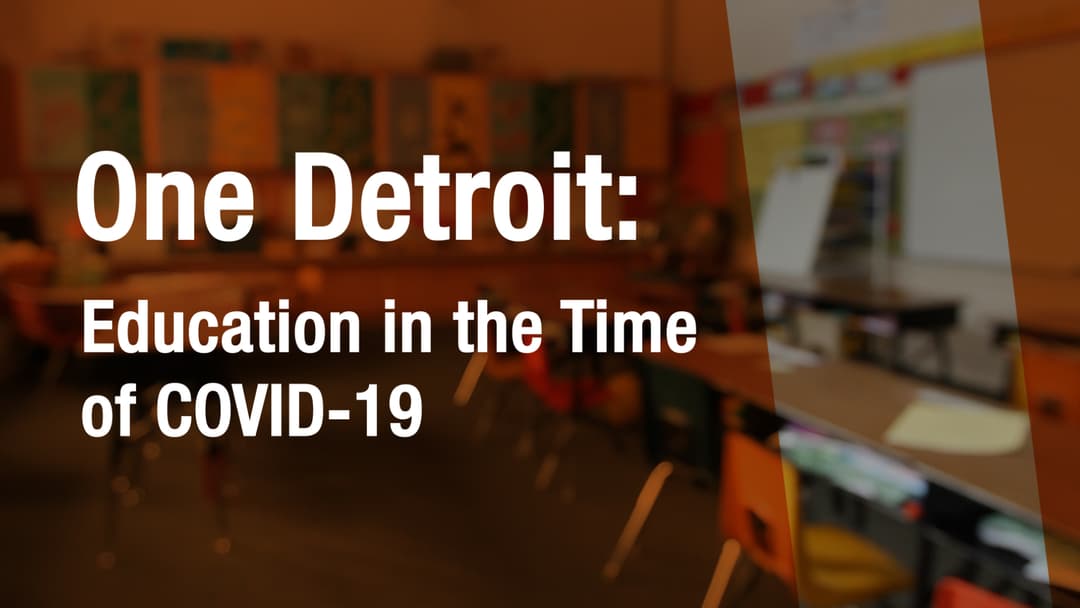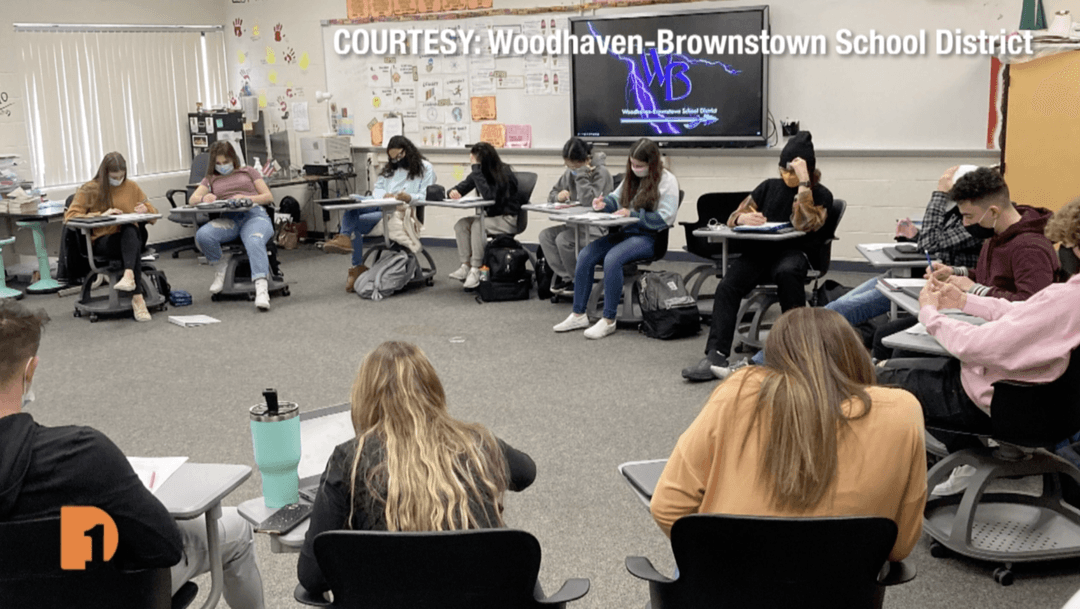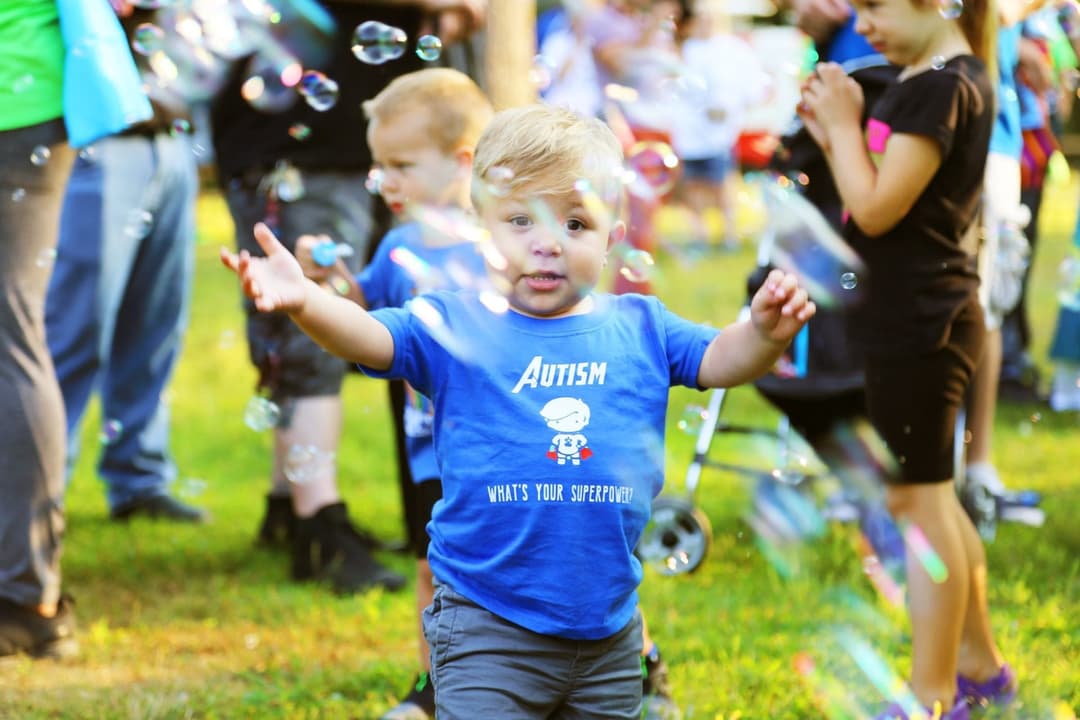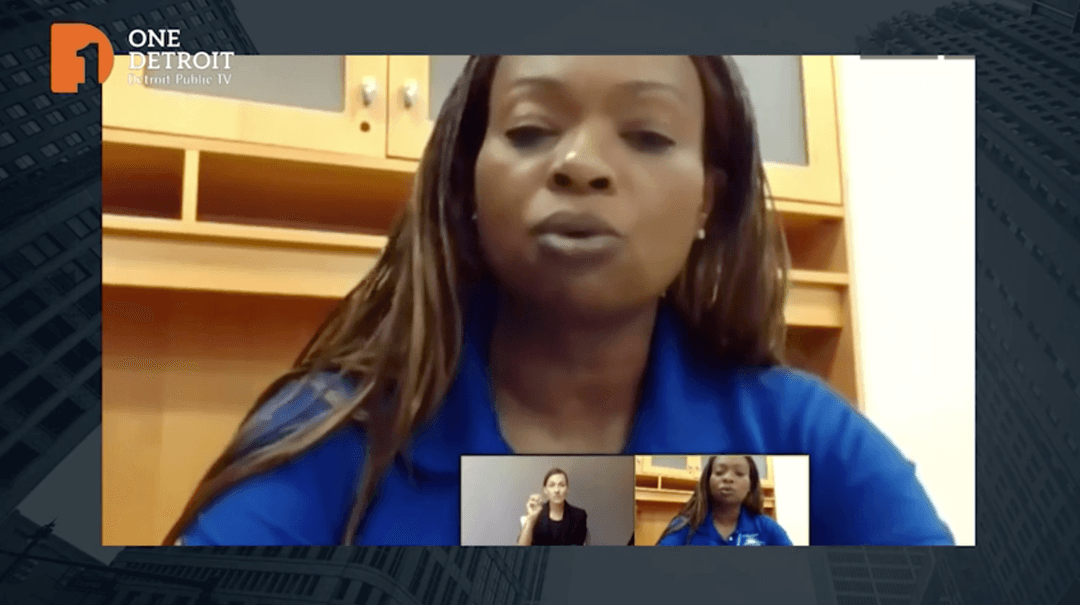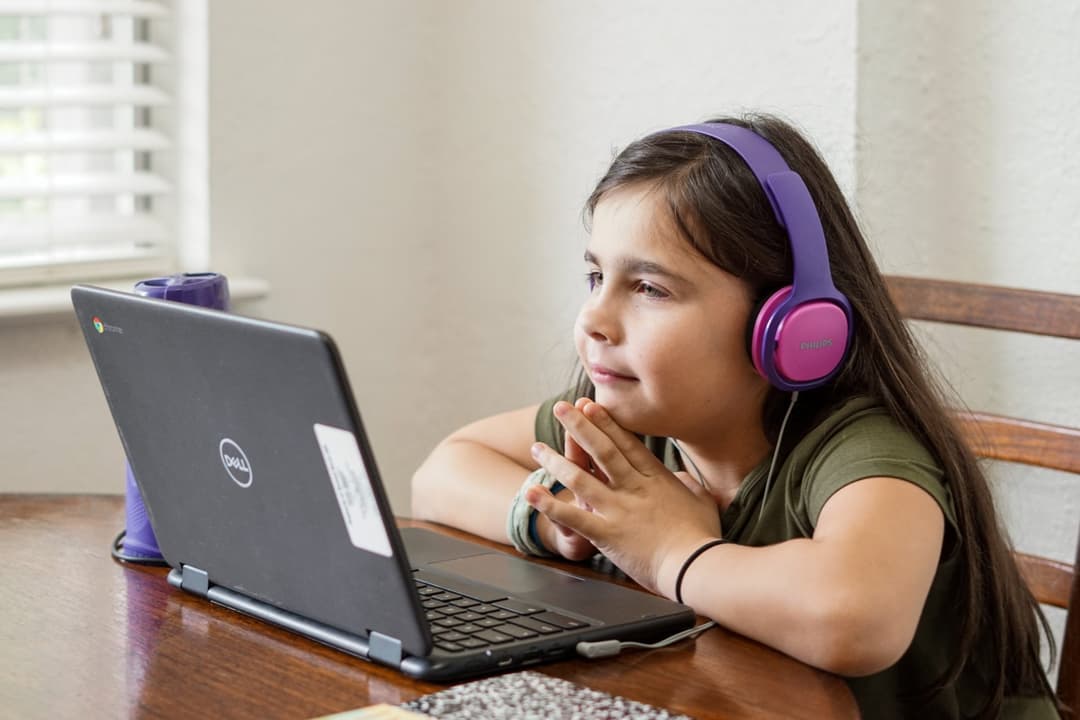COVID 313 | Providing for special needs students In Detroit
Feb 9, 2021
In this COVID313 Virtual Town Hall Meeting, Arlyssa Heard, organizer and policy lead of 482Forward talks to Iranetta Wright, Deputy Superintendent of Detroit Public Schools Community District and Ralph Bland, Founder and President of New Paradigm for Education about concerns of parents have regarding their special needs children and virtual learning.
They also discuss the different accommodations that have been made and are being made to better assist special needs students, and what their parents can do to help.
Join the COVID313 Virtual Town Hall Meeting every Thursday at noon on Detroit PBS One Detroit Facebook page.
Read the full Transcript:
Arlyssa Heard, Organizer and Policy Lead, 482forward, Interviewer There’s been some feedback from parents, I believe DPSCD is using the terminology ESE, which I really like, exceptional students I really think that’s great but based on feedback from parents, what adjustments have you made for ESE students this semester?
Iranetta Wright, Deputy Superintendent, DPSCD ] Adjustments in terms of?
Arlyssa Heard, Organizer and Policy Lead, 482forward, Interviewer Well, in terms of there have been some parents, we’ve heard feedback from parents that, ESE students have it a little bit more difficult to navigate the online learning. Some parents have even mentioned that all of their services, they’re not necessarily getting them. And I know it’s hard to deliver all of that during COVID, but are there any adjustments that have been made for that? And how are those students accommodated? And then I’ll take it a step further, if there are some concerns that parents have, what should they do?
Iranetta Wright, Deputy Superintendent, DPSCD OK, I think I have it. Alright and good afternoon, everyone. So special education, our exceptional students are of course near and dear to us and the work that we’re doing. And as I often share as a special educator myself, as I often share with our team, is that in special education, if everyone else gets a cold, our special education students get pneumonia. Right, and in this pandemic, we do understand that our special needs students, while it’s been difficult for everyone, it’s really been challenging for our special needs population. We have worked with our partners at Wayne RESA. We are we have conducted what’s called Contingency Learning Plan CLP, and this will allow us to continue the learning for the students if they’re not mastering those skills for where they are right now, throughout the rest of the year and throughout the summer. I think one of the challenges is, and Ms. Heard you reference this, is there are some things with special needs students that just need to be done face to face. So, for example, if you have students that are receiving certain physical therapies or certain occupational therapies, our team has done a really good job of working with families to give them suggestions to work with them through their virtual platforms. But a lot of our students, especially our students in many of our low incidence programs or our students that have more intensive needs, the virtual space doesn’t work for them. And it’s very difficult to give a physical therapy lesson over a telephone. So we have done things like, and you can access them on our DPSCD YouTube channel, we have put videos on our YouTube channel from each one of our disciplines so that if parents would like to access that, it’s there and available for them all the time. At the beginning of the school year, just as we were providing resources to our general education students that they could take home with them, we did the same in terms of supportive packet’s for our special needs population as well. And many of our students, many of our medically fragile students, for example, our team was delivering the package to them. But it’s pretty challenging, I think one of the questions that’s come up pretty often, and this may be one of the questions as well Ms. Heard, is why can we not bring all of the students back into the school building and prioritize bringing special education students back? Well, if you recall, DPSCD was the first school in the country to go face to face with any level of instruction, that happened in July. We worked through that process, we brought our students back to school in September. We work in partnership with our union, that union is DFT. As a part of that agreement with the union, teachers had an option to select whether they would come to school and work, whether they would work with students face to face, or whether they would work with them virtually. Many of our special education teachers opted to work with students virtually. So as our learning centers were open, they were also open to our special education students. So students could come into the building, we rerouted staff for students that had more specific needs, we routed district staff to go into those school buildings and offer additional support and assistance. But it has been a challenge across the board. Right now, we close to in-person instruction or face to face instruction before the winter, before the winter break, I call it the winter break, actually, the holiday break. We closed before then or we suspended face to face instruction. And right now we’re still in a suspended state. We are anticipating and we’re very hopeful that we’re moving back to a level of face to face instruction with our learning centers opening. Our hope right now, if nothing else changes in the data, our hope right now is February the 24th. Which brings us back after winter break, it gives our staff a couple of days to get there and get prepared. And then our students can at least come back to learning centers. And then we will continue to look at where we are with the data, what’s happening across the state, what’s happening within our area to determine if we will open for more face to face after that. But when our learning centers are open, they are open and available to our special needs students as well.
Arlyssa Heard, Organizer and Policy Lead, 482forward, Interviewer Well, Ralph Bland, I want to punt the same question to you with DPSCD uses the term ESE students, but we are talking about special education, population. What adjustments have you made? Or have there been any adjustments? And what are you hearing from parents and what kind of accommodations are being made, if any? And what can parents do to help support the process?
Ralph Bland, Founder and President, New Paradigm For Education So first, let me say thank you for having me back for the COVID313.
Arlyssa Heard, Organizer and Policy Lead, 482forward, Interviewer Thanks for coming on.
Ralph Bland, Founder and President, New Paradigm For Education I enjoy being on, and also to the fellow viewers, like Ms. Wright mentioned, it’s been very challenging and especially very challenging for our students and our young scholars. Earlier, it was very challenging doing the instruction online, so we actually had students come in to the building for face to face learning. And of course, looking for the making sure that we’re staying in tune with their IEPs and also talking with Wayne County RESA and making sure that those services continue to stay available. One thing that was very critical is that we started doing, of course, home visits. And after our home visits, we had at least 85% of our students join us. And their attendance went up, in the beginning the attendance was a little low, but once we started doing the home visits, it continued to go up. We also try something a little different to meet students and families in different areas of the city to do face to face instruction and get them out of the home where they could be a little bit more engaging and so they wouldn’t be in front of a screen all day. In addition to that, we were able to create our resource backpacks, where we put different supplies that students would need at home. As far as maybe a small dry erase board, math books, some manipulatives, crayons, pencils, papers, some other school supplies, and had those parents pick them up. We also dropped those off, because those are usually supplies parents don’t have at home, so they can create their own learning environment at home. So in addition to that, if they ran out of those different materials or supplies, they were able to come back and we were able to replace the backpack. In some situations, we had to go out to the home to do that, which is fine. And we continue to do our home checks, where we go over to the homes every week, if not every other week, to make sure families need any anything that they might be having an issue with. And in addition to that, students are still receiving their services as far as occupational therapy services and things like that, that’s also continuing to be implemented. And even those kind of difficult but it’s being implemented through us.
Christy McDonald You can find more at OneDetroitPBS.org, or subscribe to our social media channels and sign up for our One Detroit newsletter.
Stay Connected
Subscribe to One Detroit’s YouTube Channel.
Catch the daily conversations on our website, Facebook, Twitter, and Instagram @detroitperforms
Related Posts
Leave a Reply
Your email address will not be published. Required fields are marked*



